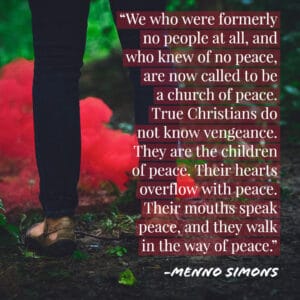
At the launch of CSA’s PrayforDREAMers campaign last month, when DACA recipient Vanessa Upegui-Seel spoke at Eastern University about her experience as an undocumented immigrant who was bought to the US at the age of 12, I learned three things I hadn’t known before:
1. Without the DACA program in place, undocumented students cannot apply for a student visa. If they lie about their legal status, in an effort to get an education, any degree they earn will be revoked if their legal status is later discovered.
Prior to receiving DACA status, Vanessa studied at a community college, but eventually gave up when she realized she’d likely have no diploma to show for all her hard work and tuition payments.
2. Undocumented immigrants pay an estimated $12 billion dollars a year in social security taxes, a revenue stream upon which the Social Security system has grown increasingly reliant. How so? Most undocumented immigrants obtain a social security number illegally, then pay taxes they will never benefit from, solely to gain employment.
Fleeing civil war and widespread violence in Colombia, Vanessa’s mother entered the US alone with a tourist visa in 1992, leaving her two young daughters behind. She worked, illegally, for four years in order to save enough money to bring her girls to the US—illegally, which was the only option available to her in 1996. During an initial application for legal status, Vanessa was given a social security number, and although her application was denied, she was allowed to retain her social security number. Vanessa has been paying US taxes since she started working at the age of 18.
3. The US immigration “system” in many ways isn’t very systematic: Amidst a framework of generally stringent laws exists a vast expanse of grey, left open to interpretation (and possible exploitation) by immigration officials.
A case in point: During Bill Clinton’s presidency, Vanessa’s mother applied for amnesty for herself and her children—but the lawyer they hired failed to properly fill in the paperwork, so their application was denied. Another lawyer then appealed the case. At the family’s first interview during the appeal, the immigration official told them she would grant amnesty to Vanessa’s younger sister, but that Vanessa herself needed to provide additional paperwork. When Vanessa returned with the required paperwork, the immigration official said she’d changed her mind, and that neither Vanessa nor her sister would be granted amnesty.
US citizens who say undocumented people should just “get in line” and “immigrate legally” rarely understand that “there is no direct path to citizenship for undocumented immigrants; even marrying a citizen does not guarantee that a green card will be approved.” To get a better idea, check out What Part of Legal Immigration Don’t You Understand? (A Game of Chance), a boardgame-style illustration from the Reason Foundation that offers insights into what legal immigration really looks like.
These three experiences illustrate the minefield that is the current US immigration reality—a network of laws that promises then withdraws hope; a system that gladly receives labor, taxes, and tuition from some of the most vulnerable and hardworking people in the nation, without granting them education, opportunity for advancement, or the peace of mind that is permanent residency.
Kristyn Komarnicki is director of dialogue and convening at CSA/Sider Center. The creator of our Oriented to Love dialogues about sexual/gender diversity in the church, Kristyn facilitates these two-day, intimate retreats that help Christians of different sexual/gender orientations and theological convictions come together to get to know, understand, and love each other, unified by the love of Christ.
Will you pray with us?
#PrayforDREAMers is a national movement of public prayer on behalf of young people brought to the United States as children, who now face the risk of deportation unless Congress passes a clean DREAM Act to provide a path to citizenship.
On Thursdays at 5:00 pm, will you stand with us to pray for DREAMers? You can pray on your own or with a group.
(The most important part of this effort is the action, not the specific day and time. Choose a day and time that you can pray consistently until legislation is passed. Pray the next time your book clubs meets or your band rehearses; pray as you transition from Sunday School to the Sunday worship service; pray after dinner, before walking into swim lessons, or on the way to school. Just choose a time and pray.)
Visit #PrayforDREAMers for more information.



